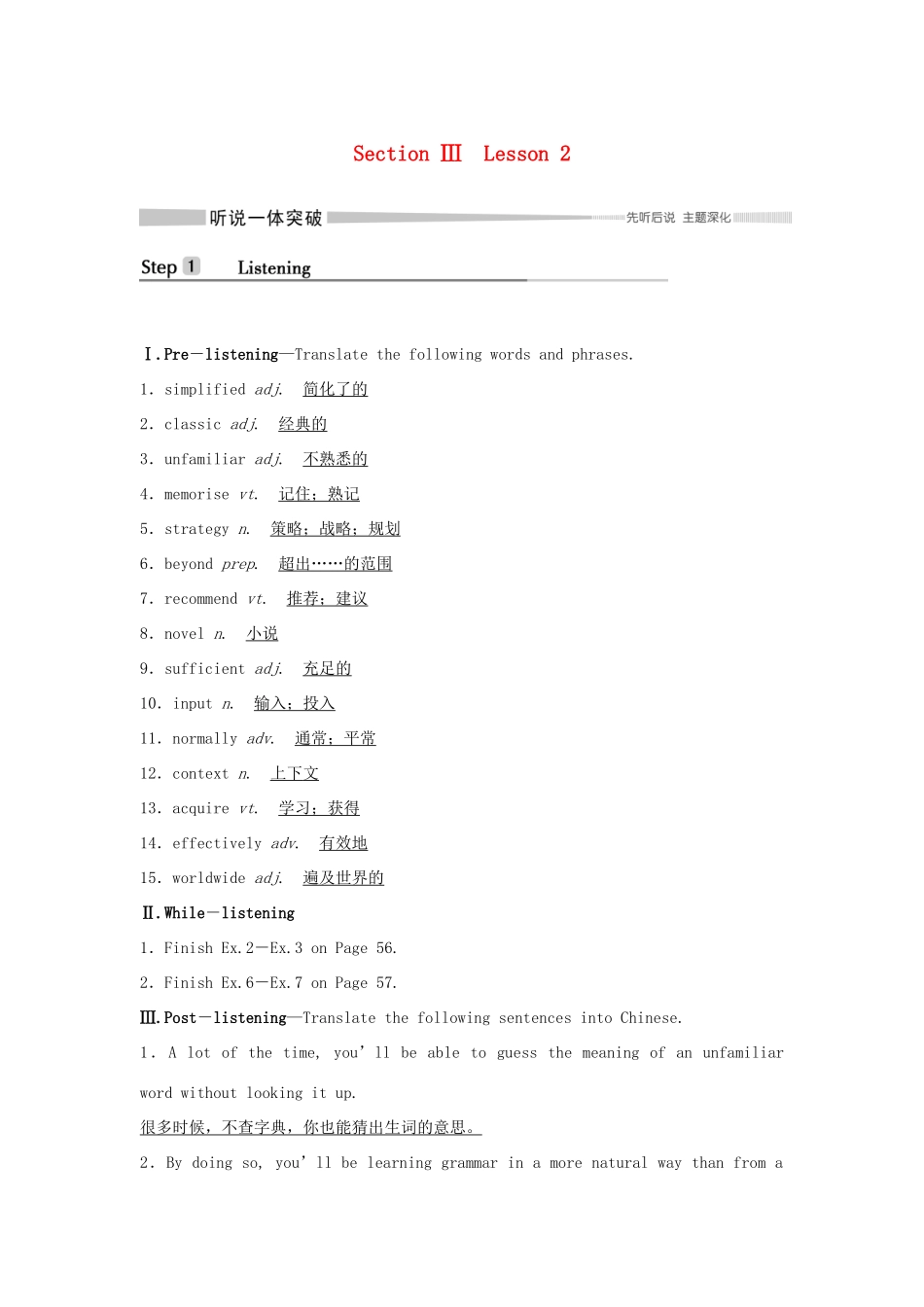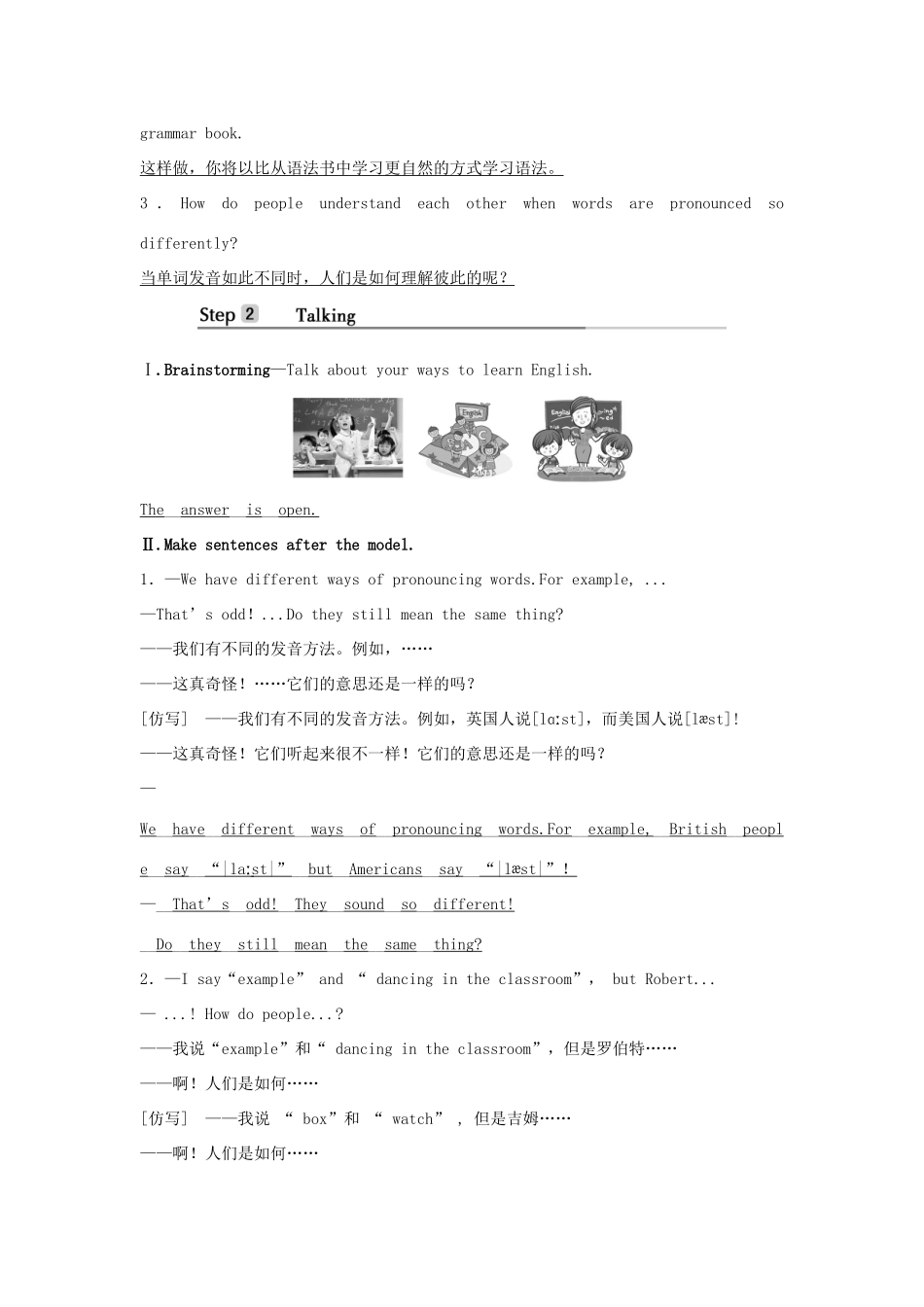Section Ⅲ Lesson 2Ⅰ.Pre-listening—Translate the following words and phrases.1.simplified adj. 简化了的2.classic adj. 经典的3.unfamiliar adj. 不熟悉的4.memorise vt. 记住;熟记5.strategy n. 策略;战 略;规划 6.beyond prep. 超出……的范围7.recommend vt. 推荐;建议8.novel n. 小说9.sufficient adj. 充足的10.input n. 输入;投入11.normally adv. 通常;平常12.context n. 上下 文 13.acquire vt. 学习;获得14.effectively adv. 有效地15.worldwide adj. 遍及世界的Ⅱ.While-listening1.Finish Ex.2-Ex.3 on Page 56.2.Finish Ex.6-Ex.7 on Page 57.Ⅲ.Post-listening—Translate the following sentences into Chinese.1.A lot of the time, you’ll be able to guess the meaning of an unfamiliar word without looking it up.很多时候,不查字典,你也能猜出生词的意思。2.By doing so, you’ll be learning grammar in a more natural way than from a grammar book.这样做,你将以比从语法书中学习更自然的方式学习语法。3 . How do people understand each other when words are pronounced so differently?当单词发音如此不同时,人们是如何理解彼此的呢?Ⅰ.Brainstorming—Talk about your ways to learn English.The__answer__is__open.Ⅱ.Make sentences after the model.1.—We have different ways of pronouncing words.For example, ...—That’s odd!...Do they still mean the same thing?——我们有不同的发音方法。例如,……——这真奇怪!……它们的意思还是一样的吗?[仿写] ——我们有不同的发音方法。例如,英国人说[lɑːst],而美国人说[læst]!——这真奇怪!它们听起来很不一样!它们的意思还是一样的吗?—We__have__different__ways__of__pronouncing__words.For__example,__British__people__say__“|la ː st|” __but__Americans__say__“|læst|” ! —__That’s__odd!__They__sound__so__different!__Do__they__still__mean__the__same__thing?2.—I say“example” and “ dancing in the classroom”, but Robert...— ...! How do people...?——我说“example”和“ dancing in the class...


